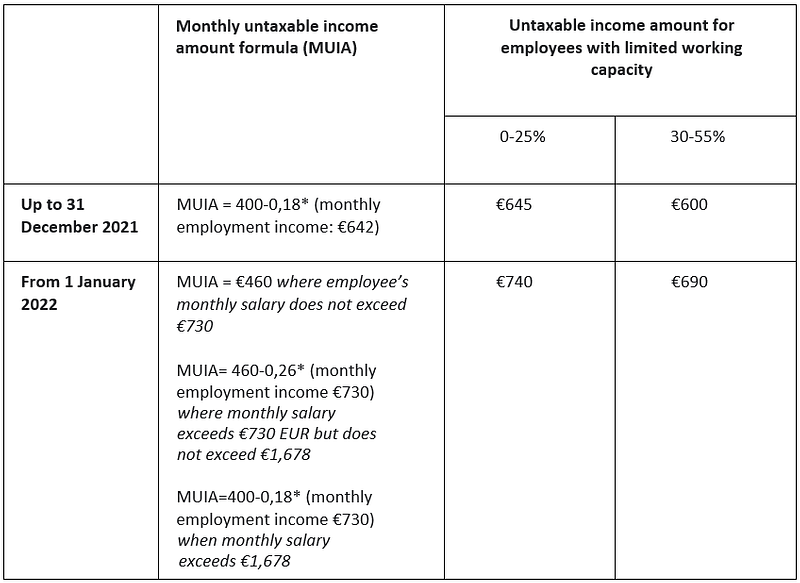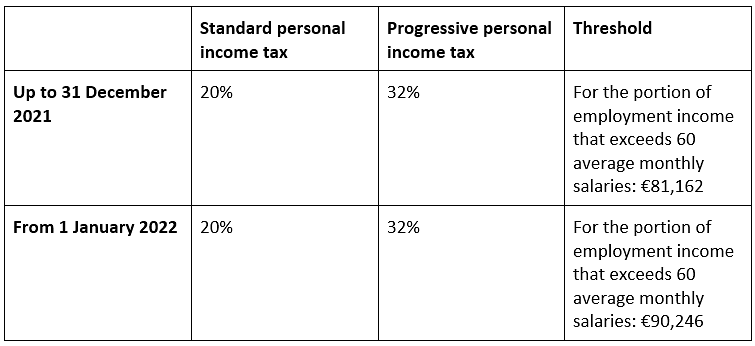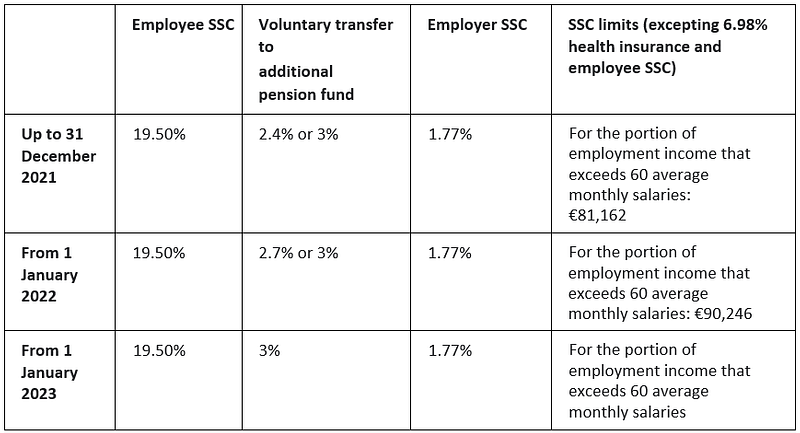In October 2021, the Lithuanian government agreed to a proposal to increase the country’s minimum monthly salary by almost 14% - from €642 to €730. The wage increase came into effect on 1 January 2022 and represented one of the most significant wage rises in Lithuania in almost a decade.
Lithuania’s Finance Minister, Gintare Skaistė, made the decision to raise the monthly wage as a consequence of the country’s favourable economic situation as the Covid-19 pandemic recedes, and following good budget revenue collection and positive economic forecasts for 2022. The increase was welcomed by Minister of Social Security and Labour, Monika Navickienė, who suggested that, in combination with other social welfare benefits for low earners, it would ‘contribute to the reduction of income inequality, social seclusion, and poverty’.
The minimum wage rise was accompanied by changes to Lithuania’s tax and social security system, which also came into effect in January 2022. Make sure your business is compliant with Lithuania's new wage and tax rules with our guide to the key changes:
Minimum Monthly Salary
From 1 January 2022, the following minimum salary levels are in effect:
- Minimum monthly salary: €730 (increased from €642)
- Minimum hourly salary: €4.47 (increased from €3.93)
Under the Lithuanian Labour Code, the minimum wage may only be paid for unskilled labour.
Untaxable Income Calculation
The formula for calculating untaxable income for employees with limited working capacity also changed on 1 January 2022. The table below sets out how the changes compare to the 2021 system:

Personal Income Tax
While there were no changes to Lithuania’s personal income tax rates in 2022, employees’ employment income limit has changed. Accordingly, under the new rules, progressive personal income tax will be applied when an employee’s income exceeds certain thresholds. In comparison to 2021, the new limits break down in the following way:

Social Security Contribution
From 1 January 2022, the following social security contribution (SSC) changes are in effect in Lithuania:
- The higher rate of contribution for additional pension accumulation has increased to 2.7% (from 2.4%) - this rate will increase gradually to 3% until 2023
- Employers must pay additional social security contributions for employees with salaries lower than €730
- The highest and lowest SSC limits have also changed
In comparison to 2021, the changes to SSC break down in the following ways:

Daily Allowances Taxation
From 1 January 2022, as a consequence of the new minimum monthly salary, the calculation for working out the non-taxable allowance for foreign business trips has changed. The calculation uses an employee’s agreed salary (set out in their employment contract) compared to the minimum monthly or hourly salary, multiplied by 1.65.
Accordingly, in comparison to 2021, the new daily non-taxable allowances are as follows:

Interested in doing business in Lithuania? Find out everything you need to know about payroll, tax, social security, employee benefits, work permits, employment law and more in activpayroll’s Guide to Doing Business in Lithuania. This is available as a free PDF to download.